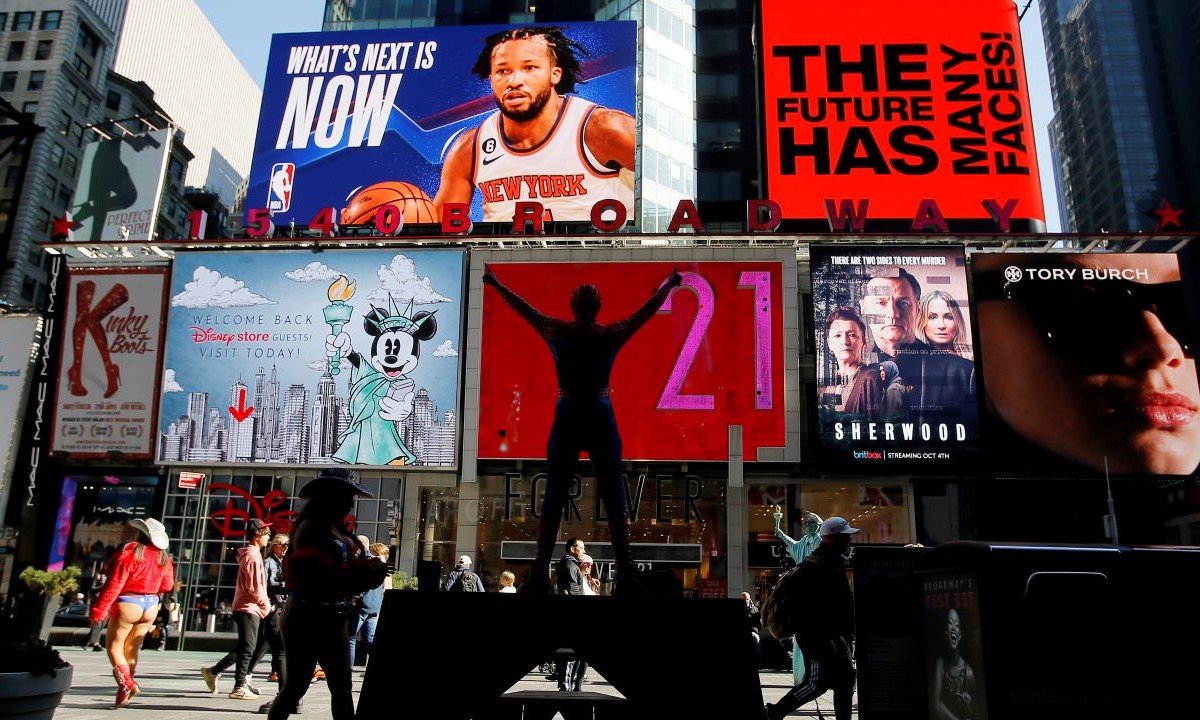About a dozen furlongs from one of the oldest racetracks in the nation, a debate on the licensing prospects of three New York casino projects has become a summer rite of passage.
Since the inaugural Racing and Gaming Conference at Saratoga in 2021, a panel on the New York downstate casino bidding process has served as the hallmark of the event. Given the enormity of a contentious process that is expected to generate $1.5 billion in licensing fees for the state, the conference has brought together some of the most influential stakeholders involved.
Distinguished speakers on last year’s panel included State Assemblyman Gary Pretlow, an architect of the proposal, and Frank Carone, a former chief of staff for New York City Mayor Eric Adams. On the same panel a year earlier, former New York Governor David Paterson joked that it shouldn’t be easier for Elon Musk to send Americans into space than it is for New York to approve three downstate casinos.
Yet, two years later it doesn't appear that any of the three casinos will open before 2026. At last week’s conference at the Saratoga Hilton, New York Senator Joseph Addabbo Jr. vented his frustration with the lengthy process.
"Why not codify the timelines? Why not give definitive answers to why we’re not doing this on a timely basis when we did three licenses upstate in a fraction of time?" Addabbo asked reflexively. "Because we’ll have this same panel here five years from now."
A Complex Process
When leading politicians and other stakeholders spoke at last year’s Saratoga conference, organizers dubbed the panel: “New York Casino Expansion to New York City and Surrounding Counties: Is the Finish Line in Sight?" Addabbo, chairman of the New York Senate's State Racing, Gaming and Wagering Committee, is skeptical that the finish line is anywhere close.
Two years ago, New York Gov. Kathy Hochul signed a casino bill by Addabbo and Pretlow into law. At the time, the legislature passed the bill with the intent of expediting the process. By that October, the New York State Gaming Commission unanimously approved the appointment of the first three members of the Gaming Facility Location Board, a panel tasked with selecting up to three casino applicants for the commission to consider for licensure.
In January 2023, the New York Gaming Facility Board issued a 70-page Request for Applications to solicit proposals for up to three casinos in New York State.
Addabbo, a Queens Democrat, represents a district that is home to Resorts World New York City, a 330,000-square-foot racino that opened in 2011. Pretlow, chair of the New York State Committee on Racing and Wagering in the assembly, represents the 89th District, an area that encompasses Mount Vernon and Yonkers. Five years ago, MGM Resorts International purchased Empire City Casino and Yonkers Raceway in an $850 million cash-and-stock transaction.
MGM Resorts and Genting Malaysia Berhad, the owners of Resorts World, have sought to transform their respective racinos into full-fledged casino properties. Since most of the other bidders still need to build a casino from scratch, the aforementioned racinos are widely assumed to be the frontrunners. While Pretlow admitted as much during last week's panel, he emphasized that neither bid is set in stone.
Fed Up With The Pace
The bidding process may feature as many as 14 applicants, drawing interest from some of the world's largest casino companies and billionaire moguls such as New York Mets owner Steve Cohen. Proposed sites include several of the most coveted real estate properties throughout the five boroughs, such as: Times Square, Hudson Yards, and Citi Field, home of the New York Mets.
Each casino is projected to create approximately 5,000 jobs at an average salary of $50,000 per employee, according to Pretlow's estimates. With the projects set to generate billions, Addabbo questioned why the state is waiting on revenue that could go to New York City's Metro Transportation Authority (MTA), local governments and public schools.
"It's a question we should not be asking of this panel, but of the governor," Addabbo said.
In the final days of the New York legislative session, the legislature passed Senate Bill 9673, a bill that contained another accelerated timeline for the process. Addabbo included an amendment that mandates that the board make recommendations on the three casinos by Dec. 31, 2025. More immediately, the bill requires the state to begin accepting applications by Aug. 31, a deadline that is approaching next week.
The board shall complete a review of all applications that have received approval from the applicable community advisory committee pursuant to subparagraph (i) of paragraph (f) of subdivision three this section and make recommendations to the commission for the selection of up to three licenses by either the date by which all applicants have received any land use entitlements, including but not limited to all necessary state and local zoning requirements, any required park, and land alienation and the disposition and acquisition of related real property, or by December thirty-first, two thousand twenty-five, whichever is earlier. If the board has not made recommendations to the commission by December thirty-first, two thousand twenty-five, the board may, for good cause shown, grant a thirty-day extension by which it must issue its recommendation to the commission….
The commission shall select up to three applicants to receive licenses within thirty days of the board making such recommendations 56 outlined in subdivision five of this section. The commission may, for good cause shown, extend the selection of up to three licenses for up to thirty days
–NY State Senate, Bill S9673,
Since the deadline is mere days away, the legislation is practically moot, Pretlow conceded.
Hochul’s office did not comment when reached by Action Network, but forwarded the request to a spokesman for the New York State Gaming Commission. On the panel, Pretlow shared Addabbo's frustration at the lengthy nature of the process. Both criticized the commission for not releasing a list of replies to a second set of questions from potential bidders. The RFA initially contained a provision with language on a trigger once the board's replies were published. Upon publication of the list, language in the RFA triggered a 30-day clock for when the applications were due. But the RFA was also amended at the meeting to remove the 30-day trigger, according to the commission.
Addabbo, meanwhile, claimed the bidders' questions were submitted by last November, adding that the commission's response appeared to be ready by the first quarter of this year.
A response to the second round of questions should be released soon, the gaming commission spokesperson told Action Network.
Environmental, Land-Use Protocols
At a June Gaming Facility Location Board meeting, the board submitted an updated timeline with new deadlines for the process. As part of the amendments approved at the meeting, the board set a deadline of June 27, 2025, for application submission. Upon the submissions, a host of local Community Advisory Committees (CACs) will form immediately thereafter and commence their statutory work, according to the board.
Before the board makes a recommendation on the three successful bidders, each applicant must receive approval from a local CAC. As it pertains to New York City specifically, the advisory committee consists of a six-person panel, including the governor, the New York City mayor, and the borough president. In Long Island, Las Vegas Sands is preparing a bid at the site of the former Nassau Coliseum. The casino development project has been estimated to cost as much as $6 billion.
Under the new timeframe, the CAC must complete the vote by Sept. 30, 2025. From there, the board set a Dec. 1, 2025 deadline for its decision, with the Gaming Commission taking formal licensing action (and collecting the licensing fee(s)) by the end of the year. The deadline is approximately one month faster than what the Legislature put forth, according to a regulatory source. In addition to CAC approval, all applicants must complete all entitlement processes (land-use/zoning, environmental, etc.) before being eligible for consideration by the board.
Gov. Kathy Hochul has a decision to make with significant implications for downstate casino bidders: Make them submit bids in August or one year from now. https://t.co/m1CK0mahyf
— Newsday (@Newsday) June 29, 2024
Complicating matters, applicants in New York City must complete a set of protocols known as the Uniform Land Use Review Procedure (ULURP), a standard procedure where applications affecting the land use of the city are publicly reviewed. But The New York City Department of City Planning has advised the board that the four impacted casino entities expect to emerge from the zoning (ULURP) process by the end of June 2025.
"This timeline encompasses all legal requirements that potential bidders must meet before we may evaluate applications,” said Board Chair Vicki Been, at the June meeting. "This roadmap also gives communities ample opportunity to have their voices heard, establishes a level playing field among multiple competitors, and affords serious applicants the opportunity to participate in a lucrative and transformational process."
At the meeting, the board noted that significant components of a proposal will most likely change "during the environmental and zoning approval processes." Days after the meeting, Newsday's editorial board outlined the complex set of factors in a July 1 piece. The legislative bill, according to Newsday, appears to favor applicants with existing video lottery terminal operations in Yonkers and at Aqueduct — the two properties close to Pretlow and Addabbo.
In Addabbo's view, there are no repercussions for missing any deadline. Asked by Action Network if the commission will make a decision on the bids by New Year's Eve of next year, Addabbo responded that he thinks the odds are 50-50.
"For something that's so common sense and rational, why do we need to beg to sign that bill?" Addabbo said. "It's something we all wanted in 2022. It's frustrating because it is common sense, it is frustrating because you want your state to be efficient. Right now, we have an inefficient process that is really languishing and just going in circles."



















































